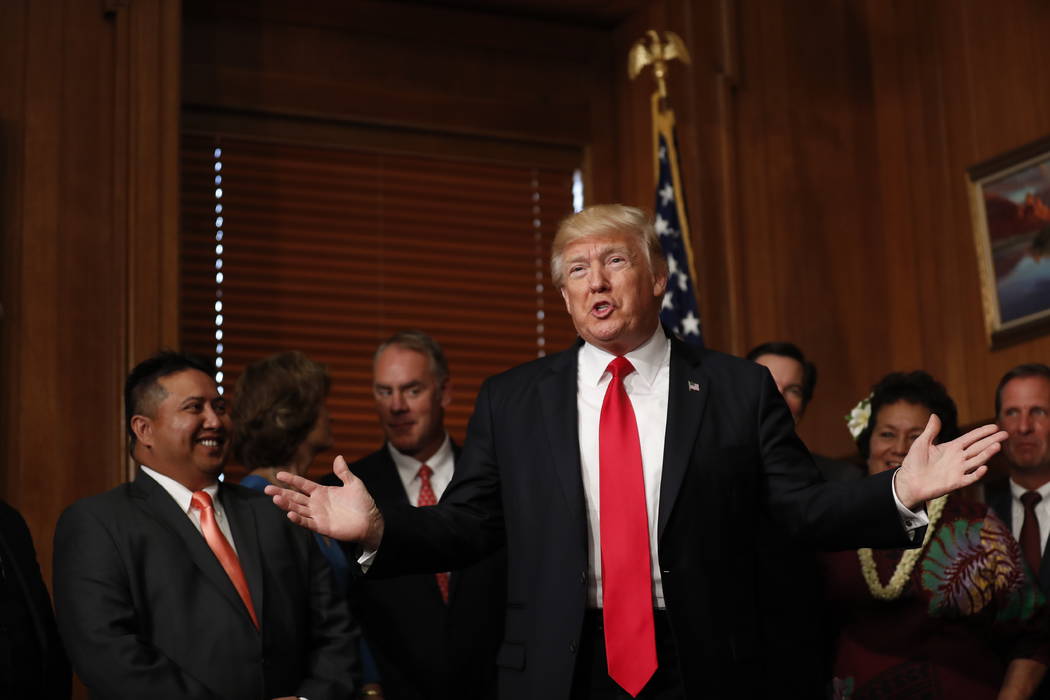Estate experts weigh in on Trump’s tax plans
The estate tax, one of the government’s sources of revenue on the chopping block in the Trump administration’s tax reform plans, has declined in its influence across the country over the years.
But even without it, a trio of estate professionals based in the Las Vegas Valley said Thursday, Washington will still have tools to collect money from wealthy inheritances.
S. Craig Stone II, an estate and business planning attorney, said the estate tax has become an ideological fight more so than one about helping a large number of Americans.
Only .2 percent of Americans pay the tax on their inheritances. In his own practice, Stone said he mostly works to protect inheritances from divorce or bankruptcy and organizes inheritances so that heirs aren’t spoiled by what a deceased parent leaves behind.
A revisit of taxes is worthwhile given no major changes since 1986, Stone said. But he will wait for more details from the White House before deciding how the proposal will affect his practice.
“It’s time for a major rewrite of the tax code,” he said. “This feels more like a campaign patchwork.”
Of greater consequence to most Americans is which deductions are eliminated by the Trump administration, certified-public accountant Dennis Meservy said.
The earned income tax credit, for example, helps low-income families, he said.
A married couple making $35,000 a year and raising three kids under age 19 would get back about $4,000.
Treasury Secretary Steve Mnuchin told reporters Wednesday all deductions besides mortgage interest and charity donations will get cut.
A positive benefit from the proposal is no tax on the first $24,000 a married couple makes, Meservy said.
“That sounds like a great opportunity,” he said. “There’s a lot of good to the bill.”
David Grant, a partner with the Grant Morris Dodds law firm who specializes in estate planning, said he’s gone from filing dozens of estate tax returns in the early 2000s to no more than four a year. That’s because in 2001, Americans had to pay tax on inheritances worth $650,000.
Today, inheritances must exceed about $5.5 million for one person or $10.9 million for a married couple for Washington to collect tax on it.
The estate tax formula is complex. An inheritance worth $10 million would result in about $1.8 million paid to the federal government.
Wealthy Americans should worry about what would replace the estate tax, Grant said. Washington could seek revenue from taxing property heirs try to sell. But no matter what replaces the estate tax, Grant doesn’t think he’s out of a business.
“Whenever laws change, creative people, and lawyers tend to be creative people, find the new ‘loophole,’” he said. “Any law carries with it an opportunity for planning.”
Contact Wade Tyler Millward at wmillward@reviewjournal.com or 702-383-4602. Follow @wademillward on Twitter.

















